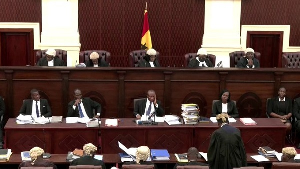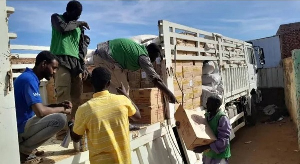The CEO of the Private Enterprise Federation, Nana Osei Bonsu, has called on government to rethink tax exemptions and waivers on imported goods in order to create advantage for local manufacturers to boost production and help create jobs.
“If the waivers on the taxes are for raw materials for production, raw materials that we don’t have, then, that is fine, because we need to add value, we need to create jobs, and we need to produce. If the waivers are for products that we don’t have now, then it has to be for a specific period to allow us to grow our own and ease off from the dependency of the foreign goods.
But if it is just a waiver to come and sell products that are coming from overseas, then that is no. Because we don’t want to flood our markets with cheap imports, where we give them advantage by waiving taxes, lowering their pricing at the market against competitive pricing from local producers,” he said in an interview with the B&FT.
Government, in the 2017 budget, indicated that a list of import duties and tax exemptions will be reviewed to enhance production and tackle the abuse in the exemptions regime.
The review, the budget indicated, will cover import duties, taxes and levies payable by MDAs and other government departments; import duties and all forms of taxes and levies payable by both domestic and foreign companies, suppliers and contractors executing projects and contracts in the country.
It will also include import duties and all forms of taxes and levies payable by both domestic and foreign companies and investors doing business in the country; and import duties and all forms of taxes and levies payable by non-governmental and charity organisations.
But Nana Osei Bonsu argues that these tax reviews and waivers should not be made to support imported products which will in turn put local manufacturers in an unfavourable situation.
He further bemoaned the present tax regime system which, he argues, offers competitive advantage to imported products rather than locally manufactured ones, calling for a rethink of the system.
“We have to rethink the whole idea of waiver on tariffs and using tariffs to influence local production and local competitiveness. The system should be managed in a way that will assist locals instead of foreign goods.
I am cognisant of the fact that we don’t have enough local producers, but we cannot forever do not have them. So we have to have a plan…Anytime there is a lower of cost on the imports without providing equivalent lowering of the cost to the locals, then you disadvantage the local production,” he said.
“Let’s take fertilizers, for example: the imports of chemical fertilisers have been eased but there is nothing to show that they are better than the organic fertilisers. So, why don’t we concentrate on assisting the locals to produce more of the organic fertilisers rather than easing the tariffs on the chemical fertilisers that are coming from overseas?” he asked.
Click to view details



Business News of Wednesday, 3 May 2017
Source: thebftonline.com

















